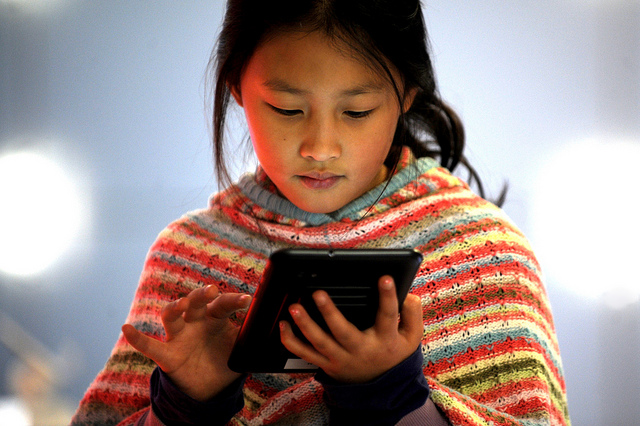When was the last time you walked into your waiting room to introduce yourself to a child in your practice, and she unplugged her headphones from her iPod, her parent had to tell her to look up from her cell phone, or she finished texting her friend before shaking your hand? In today’s world, one or more of these things has probably happened just yesterday. Whether you are a psychotherapist, SLP, OT, social worker, or any profession that works with children, you need to know about the technology being used today.
During your initial interview with a child, you are likely to find that one of her main interests involves digital media. With some children this may take the form of daily video/computer gameplay. For others it may consist of frequent texting, listening to music, browsing Facebook, or playing games online with friends. The data is compelling: a 2010 Kaiser Foundation study found that children aged 8 to 18 use digital media for 7 hours 38 minutes a day. If we account for multitasking (using 2 or more different digital media at the same time) the number increases to more than 10-1/2 hours a day. And it’s growing.
When we look at the specific population of kids that we work with in our schools, offices, and clinics, there is reason to think that these children may be even more involved with digital media than their peers. Technology use is a source of positive self-esteem for many kids seen in a clinical practice, a place where nobody evaluates or criticizes their performance. Children are easily engaged, attentive, and stimulated with the use of technology, in contrast to their experiences at school. Digital media has characteristics that draw in children who struggle with social/emotional issues, academic concerns, and learning. It is highly stimulating, provides clear and immediate feedback, and does not punish mistakes. Video games and many other digital technologies can provide increasing levels of challenge that match a child’s mastery; create an opportunity to learn through guided discovery; and can present material in a multi-modal fashion that includes words, actions, images, and sounds.
While many have criticized digital media as being a waste of time and decry the negative impact of these tools on children, there is compelling evidence that explains the positive impact of these tools. Many studies describe how playing video games can enhance selective and sustained attention, improve working memory, and assist with problem-solving skills. There is also a great deal of evidence that demonstrates how digital media can be very helpful for learning academic skills. Compelling research illustrates that this may be true particularly for children with Attention-Deficit/Hyperactivity Disorder and learning disabilities. Certain computer programs may be better at teaching skills such as phonological awareness and mathematics than traditional teaching methods.
[cjphs_content_placeholder id=”73595″ random=”no” ]These technologies are likely to become an even larger presence in the lives of 21st century children. If parents, educators, and child therapists want to help these children, we need to begin using these tools and technologies as part of our work with them. Just as we need to understand the language and culture of an individual in order to help her, we need to understand how digital media affects children in order to help them. So if you wrote your Master’s thesis on an IBM Selectric (as I did) or grew up watching 3 fuzzy stations on your 17-inch black-and-white television (also like me), it’s time to embrace the digital world. You aren’t required to become a technophile, but you do need to know about kids’ technology so you can use it to improve their social, academic, and emotional development.




